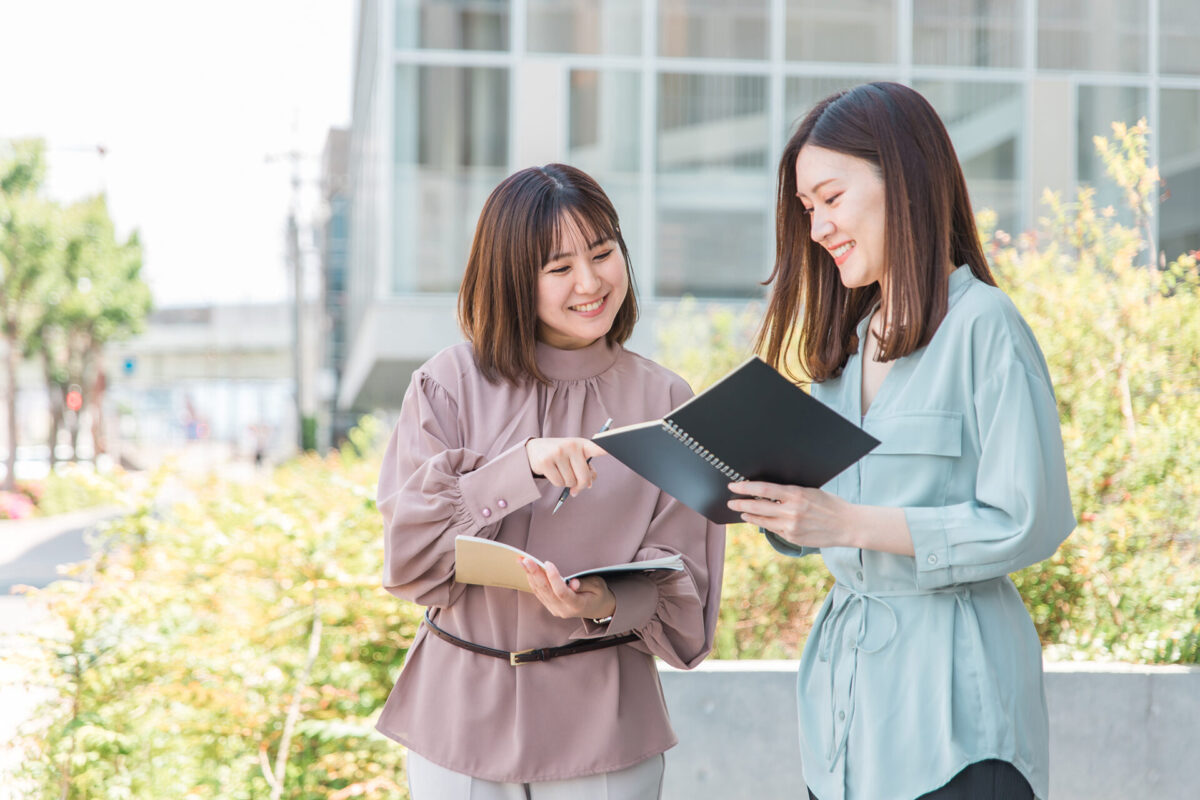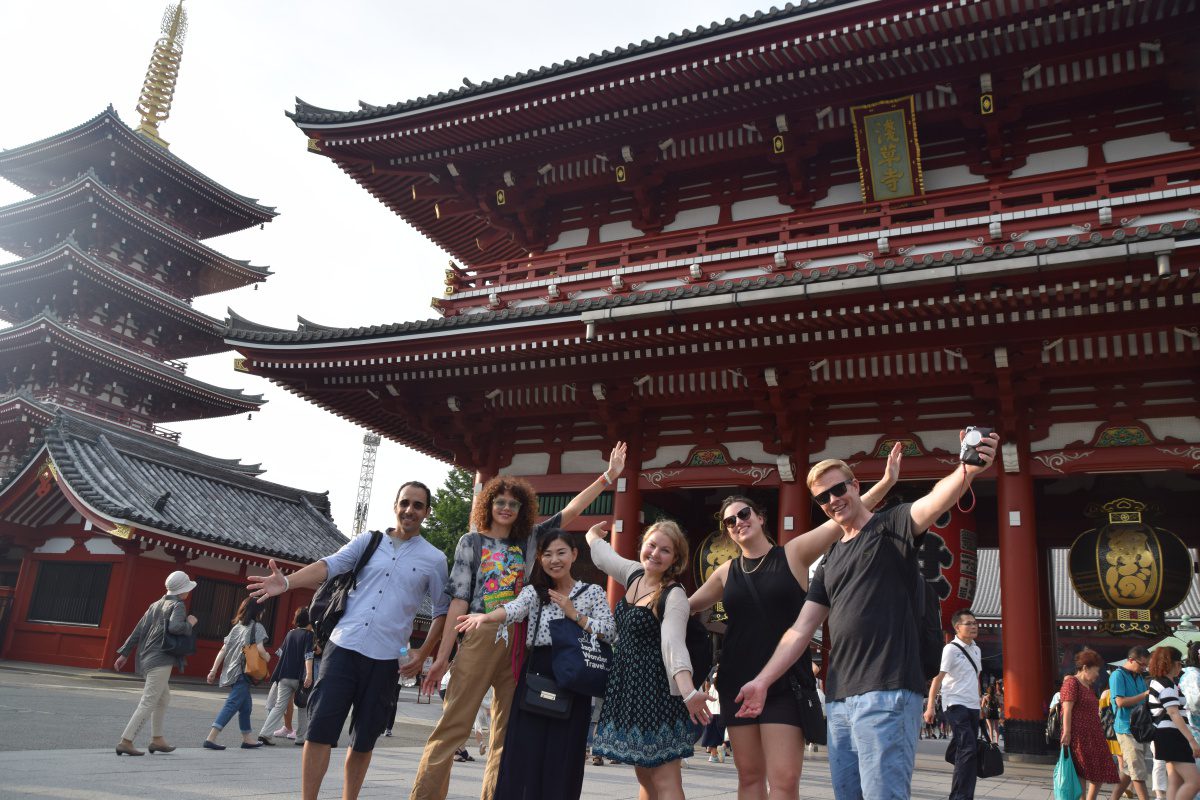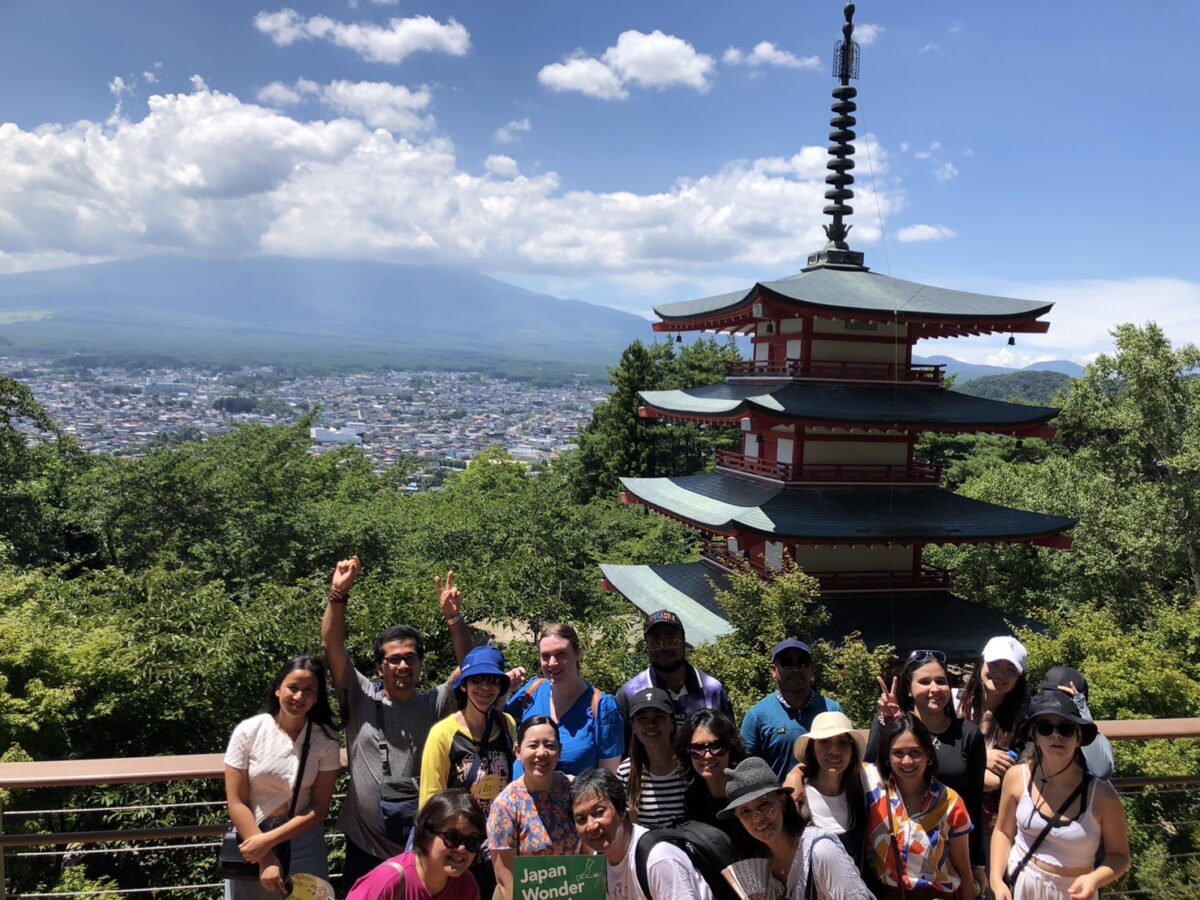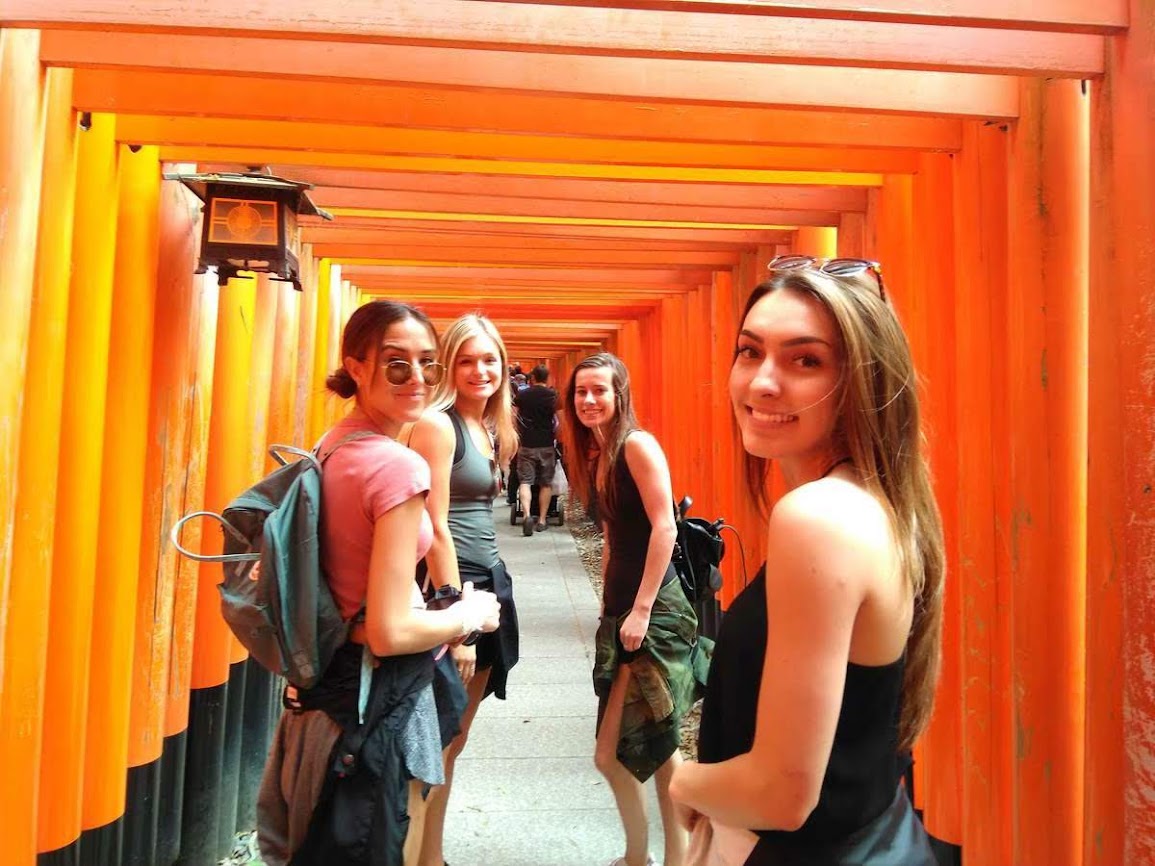[ad_1]

Author’s profile
Mao Goto is a Japanese freelancer who was born in Hayama, Kanagawa prefecture, and raised in Tokyo. Since 2016 she lives within the Taito Ward, house to numerous Japanese tradition hotspots corresponding to Asakusa, Akihabara, and Ueno. She has been within the area of English schooling in Japan and acquired her Grasp’s diploma in March 2020. A lover of images, journey, sweets, and cross-stitch. Contact her through Fb.
This publish could comprise some affiliate hyperlinks. If you click on by way of and make a purchase order we could obtain some fee, at no additional value to you.
A phrase of gratitude is what you get while you assist somebody in want or give them a present of one thing. The phrase “thanks” exists in all languages. In Japan, the phrase “Arigato (thanks)” is usually utilized in Japanese. There are literally a lot of different methods of expressing thanks in Japanese, and all of them are generally utilized in Japanese dialog. On this article, we are going to introduce varied thanks phrases which might be generally heard in Japanese dialog.
1. Arigato

Arigato (ありがとう) is essentially the most primary option to categorical gratitude to somebody in Japanese. Arguably, the phrase “Arigato” is a generally recognized Japanese phrase of gratitude world wide. Due to this fact, individuals who haven’t realized the Japanese language earlier than already know this phrase. Arigatou is usually used with household and buddies as a result of it’s comparatively frank.
Instance dialogue:
A: 田中さん、風呂を沸かしておいたよ。
Tanaka-san, furo wo wakashite oita yo.
(Mr. Tanaka, I ready a shower for you.)
B: ありがとう。後で風呂に入るね。
Arigato, ato de furo ni hairu ne!
(Thanks. I’ll take a shower later. )
2. Arigato gozaimasu

If you wish to thank a superior or an older particular person politely, it’s higher to make use of “Arigato gozaimasu (ありがとうございます)”. It is because “gozaimasu” is called a well mannered expression, making the entire sentence appear extra well mannered. This phrase can be typically used to thank a stranger for serving to you out, and is a really helpful phrase to recollect when you’re touring in Japan.
Instance dialogue:
A: すみません、ここへどうやって行くのですか?
Sumimasen, kokohe douyatte iku no desuka?
(Excuse me, how can I get to this place?)
B: ここから200メートル先にあります。
Koko kara ni-hyaku metoru saki ni arimasu.
(It’s simply 200 meters from right here.)
A: 分かりました。ありがとうございます!
Wakari mashita. Arigato gozaimasu!
(Alright. Thanks very a lot!)
3. Dōmo

“Dōmo (どうも)” is a extra casual means of claiming “arigato”. It’s typically used between shut colleagues and enterprise companions with whom one has had many transactions, and is an off-the-cuff means of expressing gratitude. Nonetheless, it’s too frank and will give a impolite impression when used with superiors or folks of upper standing.
Instance dialogue:
A: おみやげを買ってきたのでよかったらどうぞ。
Omiyage wo katte kita node yokattara douzo.
(I purchased a memento for you, right here you might be.)
B: あら、どうも!
Ara, dōmo!
(Thanks!)
4. On ni kimasu

“On ni kimasu (恩に着ます)” is without doubt one of the thank-you phrases that signifies that you’re grateful to obtain a favor from the opposite particular person. It’s typically utilized in enterprise between shut colleagues and buddies, and has the nuance of “thanks to your assist. For instance, you should utilize this phrase when you’re unable to complete your work and a colleague sees this and gives a serving to hand.
Instance dialogue:
A: 斉藤さんがこの書類の印刷してくれたおかげで会議がうまく行ったよ。恩に着るよ。
Saitou-san ga kono shorui wo innsatsu shite kureta okage de kaigi ga umaku ittayo. On ni kiruyo.
(Because of you for printing this doc, the assembly went effectively. I owe you.)
B: 助けになれてよかったです。
Tasuke ni narete yokatta desu.
(I’m glad I could possibly be of assist.)
5. Arigatai desu

One of many extra informal honorific phrases, “Arigatai desu (ありがたいです) ” is usually used amongst shut buddies. The phrase “arigatai” consists of the which means “to be pleased about somebody’s favor, which is uncommon,” and has the nuance of “your assist is actually useful”. In enterprise conditions, it’s thought-about to be a phrase to keep away from as a lot as doable, particularly with superiors and enterprise companions.
Instance dialogue:
A: 教育専門家のあなたから助言を頂けるとはとても有り難いです。是非聞かせてください。
Kyouiku senmonka no anata kara jyogen wo itadakeru toha totemo arigatai desu. Zehi kikasete kudasai.
(I’d be very grateful for recommendation from you as an schooling knowledgeable. I’d love to speak to you about it.)
B: いえいえ、少しでもあなたの助けになれたら嬉しいです。
Ieie, sukoshi demo anata no tasuke ni naretara ureshii desu.
(No worries, I’m joyful that can assist you in any means I can.)
6. Tasukari masu

If you ask somebody for a favor or one thing they usually settle for your request, the phrase “Tasukari masu (助かります)” is usually used to precise gratitude. It’s typically used amongst buddies and colleagues. Keep away from utilizing this phrase with superiors or enterprise companions, as it might be taken as a means of claiming, “Please do it in order that I don’t need to bear a lot of the burden”.
Instance dialogue:
A: すみません、茶色の革の財布を落としてしまったのですが、ここに届いていませんか?
Sumimasen, chairo no kawa no saifu wo otoshite shimatta no desu ga, koko ni todoite imasenka?
(Excuse me, I dropped my brown leather-based pockets, however has it arrived right here?)
B: では、急いで届いているかお調べ致しますね。
Dewa, isoide todoite iruka oshirabe itashi masu ne.
(Effectively, then let me rapidly examine if it has arrived.)
A: ありがとうございます。助かります。
Arigatou gozaimasu. Tasukari masu.
(Thanks very a lot. That’s useful.)
7. Katajike nai

“Katajike nai (かたじけない)” will not be a phrase continuously utilized in Japanese dialog, however in historic dramas that broadcast on tv, samurai and warriors typically say the road “Katajike nai” after they are expressing gratitude. The phrase is alleged to have already existed within the Heian interval and initially meant “I’m awed”. It may be stated to superiors or enterprise companions as a means of humbling oneself and expressing gratitude for the opposite particular person’s favor. However, it’s not typically used between buddies or shut colleagues, because it sounds too formal.
Instance dialogue:
A: よかったらコーヒーとお菓子はいかがですか?
Yokattara kōhī to okashi wa ikaga desu ka?
(Would you wish to have espresso and sweets?)
B: おお、かたじけない。
Oo, katajike nai.
(Oh, thanks very a lot.)
8. Sumimasen

“Sumimasen” is a phrase you should utilize while you need to apologize for a mistake you made or to thank somebody for his or her kindness. Nonetheless, it doesn’t have the identical nuance as “gomennasai (I’m sorry)” or “arigatou (thanks)”. When somebody does one thing for you, “sumimasen” is used to precise gratitude and a light-weight apology for placing a burden on the opposite particular person.
Instance dialogue:
A: 今からコンビニに行くけど、あなたの買ってきてほしいものある?ついでに買っておくよ。
Imakara konbini ni ikukedo, anata no katte kite hoshii mono aru? Tsuide ni katte okuyo.
(I’m going to the comfort retailer now, however is there something you need me to purchase for you? I’ll purchase it whereas I’m out.)
B: あぁ、すみません!じゃあバニラアイスをお願いします。
Aa, sumimasen! Jyaa banira aisu wo onegaishimasu
(Oh, thanks! Then I’ll have vanilla ice cream, please.)
9. Kansha moushiage masu

“Kansha moushiage masu” is a phrase that can be utilized to precise gratitude in formal conditions corresponding to enterprise. It’s typically used to offer a well mannered impression to superiors or enterprise companions. Including “kokoroyori (心より, sincerely)” to the start of the sentence makes the whole sentence sound extra well mannered.
Instance dialogue:
A (Convention moderator) : この度はお忙しい中こちらの会議に御参加頂きまして、心より感謝申し上げます。 本日の議題は・・・
Konotabi wa oisogasgii naka kochira no kaigi ni gosanka itadakimashite, kokoroyori kansha moushiage masu. Honjitsu no gidai wa…
(I want to thanks for taking day out of your busy schedule to attend this assembly.
Immediately’s agenda is….)
10. Gokurousama desu

“Gokurou-sama” is a phrase to precise gratitude for one thing the opposite particular person has performed for you, even whether it is on the expense of you. For instance, this phrase can be utilized to thank the supply one who introduced your bundle to your door. You may also use this phrase in enterprise conditions, however there’s a rule that you shouldn’t say it to somebody above you as a result of it makes you sound boastful.
Instance dialogue:
A: お届け物です。こちらにサインをお願いします。
Otodoke mono desu. Kochira ni sain wo onegai shimasu.
(Right here is supply for you. Please signal right here.)
B: ではこちらにサインしますね。いつも配達ご苦労さまです。
Dewa kochira ni sain shimasu ne. Itsumo haitatsu gokurousama desu.
(Then I’ll signal right here. Thanks all the time to your supply service.)
On this article, we have now launched varied Japanese phrases for expressing gratitude. After all, there are various different methods to say thanks in Japanese. In case you are , decide up a Japanese language examine textbook! Studying varied methods to say thanks in Japanese will certainly be very helpful in each day life in addition to in enterprise conditions. It is rather helpful to have the ability to use the above phrases, however in case you are unsure, merely use “Arigatou gozaimasu”. That could be a very easy-to-use phrase of thanks that can be utilized in any state of affairs and with any particular person of any standing. Nobody will take a look at you in a foul means after they hear you say thanks. Study a wide range of thanks phrases and categorical your gratitude to others in loads of methods.
Japan Surprise Journey Excursions
Japan Surprise Journey is a journey company that gives guided excursions all through Japan.
From non-public strolling excursions to scrumptious Meals and Drink excursions, we might help you manage the very best excursions only for you! If you wish to discover Japan and study extra in regards to the historical past and backstories of every space you might be visiting, our educated and pleasant English talking guides will fortunately take you to the very best spots!
As well as, we will give you any help you might want to your upcoming journey to Japan, so please be at liberty to contact us you probably have any questions or want some assist!

▶Tokyo 1–Day Highlights Non-public Strolling Tour (8 Hours)
There’s no higher option to discover an space than taking a tour with a educated native information. You should have the possibility to study in regards to the historical past and attention-grabbing background tales of Tokyo, in addition to uncover some hidden gems which will be exhausting to do with out a information.

▶Mt. Fuji Day Journey Bus Tour from Tokyo
Expertise the breathtaking views of Mt. Fuji by visiting the highlights of the world on our guided sightseeing bus tour! Departing from Shinjuku in central Tokyo, you possibly can journey comfortably to the entire greatest spots within the space by bus.

▶Kyoto Non-public Full Day Strolling Tour
On this full-day non-public tour of Kyoto, it is possible for you to to see the highlights of Kyoto in simply at some point and on the identical time develop a deeper understanding of each the tradition of the world and Japan as a complete.

Discover the opposite Excursions
▶Tour Packages
If you wish to make journey simpler, we advise you look into tour packages.There are a variety of tour packages on the market to go well with the accomodate for every traveler wants. Click on the button under to search out the very best tour bundle from varied Tour Operators!

Comply with us on Instagram, Fb, Twitter, and TikTok for extra journey inspiration. Or tag us to get featured!
Comfortable touring!
Keep knowledgeable of the very best journey tricks to Japan, essentially the most thrilling issues to do and see, and the highest experiences to have with the Japan Surprise Journey Publication. As soon as each two weeks we are going to introduce you to our newest content material.
Different articles you is perhaps excited by
[ad_2]